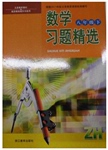题目内容
阅读下面材料,在空白处填入适当的内容(不多于3个单词)或括号内单词的正确形式。温馨提示:请将答案写在答题卷上
The way we cook is important. In many countries, the two choices are 1. (nature) gas or electric-powered stoves.
The World Health Organization warns that millions of people 2. (suffer) from indoor air pollution at present time, which results from the use of 3. (danger) fuels and cook-stoves in the home.
WHO officials say nearly three billion people are 4. (able) to use clean fuels and technologies for cooking ,heating and lighting. As a result, more than seven million people die from exposure to indoor or outdoor air pollution each year. Most of the deaths are in 5. (develop) countries, such as lndia, China and Latin American countries.
WHO officials say opening a window or door 6. (let)out the harmful air will not correct the situation 7. will only pollute the outdoors.
Nigel Bruce, 8. is a professor of Public Health at the University of Liverpool, says researchers are developing good cook-stoves and other equipment to burn fuels 9. a more efficient way.
But, this is just a start. It is urging developing countries to use 10. (clean) fuels and increase access to cleaner and more modern cooking and heating appliances(用具)
 习题精选系列答案
习题精选系列答案

